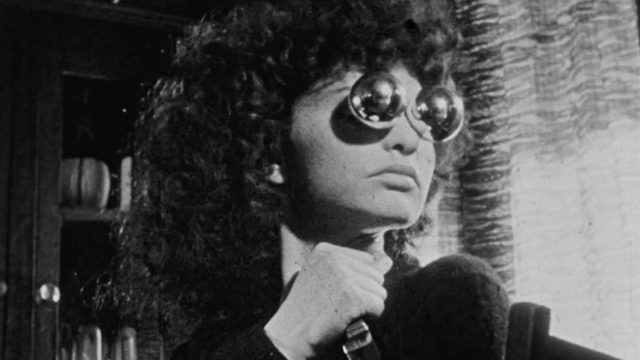Meshes of the Afternoon (1943) dir. Maya Deren
Some day dreaming for your Friday.
In honor of the new Maya Deren collection out from Kino this week, here’s her most recognized film. Possibly one you’ve seen before, or feel like you’ve seen before, perhaps in a dream…
Or maybe from one of the many, many pieces that have paid homage to and/or stolen from it:
“Your Ghost” (1994) dir. Katerine Dieckmann
Music by Kristin Hersh
The Gentleman Who Fell (1994) dir. Kae Garner, Paul Archard
Music by Mila Jovovich
Something Meshy in the air in 1994. The first video makes a little more sense as the song itself took cues from the original film. The second one – often used by a film professor of mine as an example of the blurry border between homage, theft and his enduring crush on Mila Jovovich – is curiouser and curiouser, borrowing from Deren for no particular reason other than it looks cool.
But Meshes has always attracted musicians. It was originally presented without any score. Later prints added a score by Deren’s third husband Teiji Ito but it’s remained a popular one for musicians to add their imprint. The music in this version is credited to Alberto ‘Hugo’ Polese and Alessandro Fedrigo and you can find about half a dozen other soundtracks easily. There’s also a couple versions where student foley artists have used it for practice (one adding a 50s sci-fi “boiiing” when a jump cut turns a key into a knife). You’ll have to spring for the box set to hear the “original” Ito, though you can hear his music by itself here.
But appropriately it’s Deren’s imagery that pops up in placed expected and unexpected, and with good reason. It contains all the fascinating discombobulation of a surrealist film but hints at just enough discernible meaning to add a feeling of familiarity. That familiarity only adds to its power as pieces of it get repurposed consciously and otherwise. Knives gleamed before and after “Meshes,” and Deren’s influence on and from contemporaries like Jean Cocteau is tough enough to untangle, let alone how her staircase, hidden keys, and ominous telephones influenced the minds of Alfred Hitchcock and David Lynch years later. In “Meshes” the unfamiliar becomes familiar and vice-versa, adding to its dreamlike quality.
For more on Deren, consult C.M. Crockford‘s piece on “Witch’s Cradle.”

